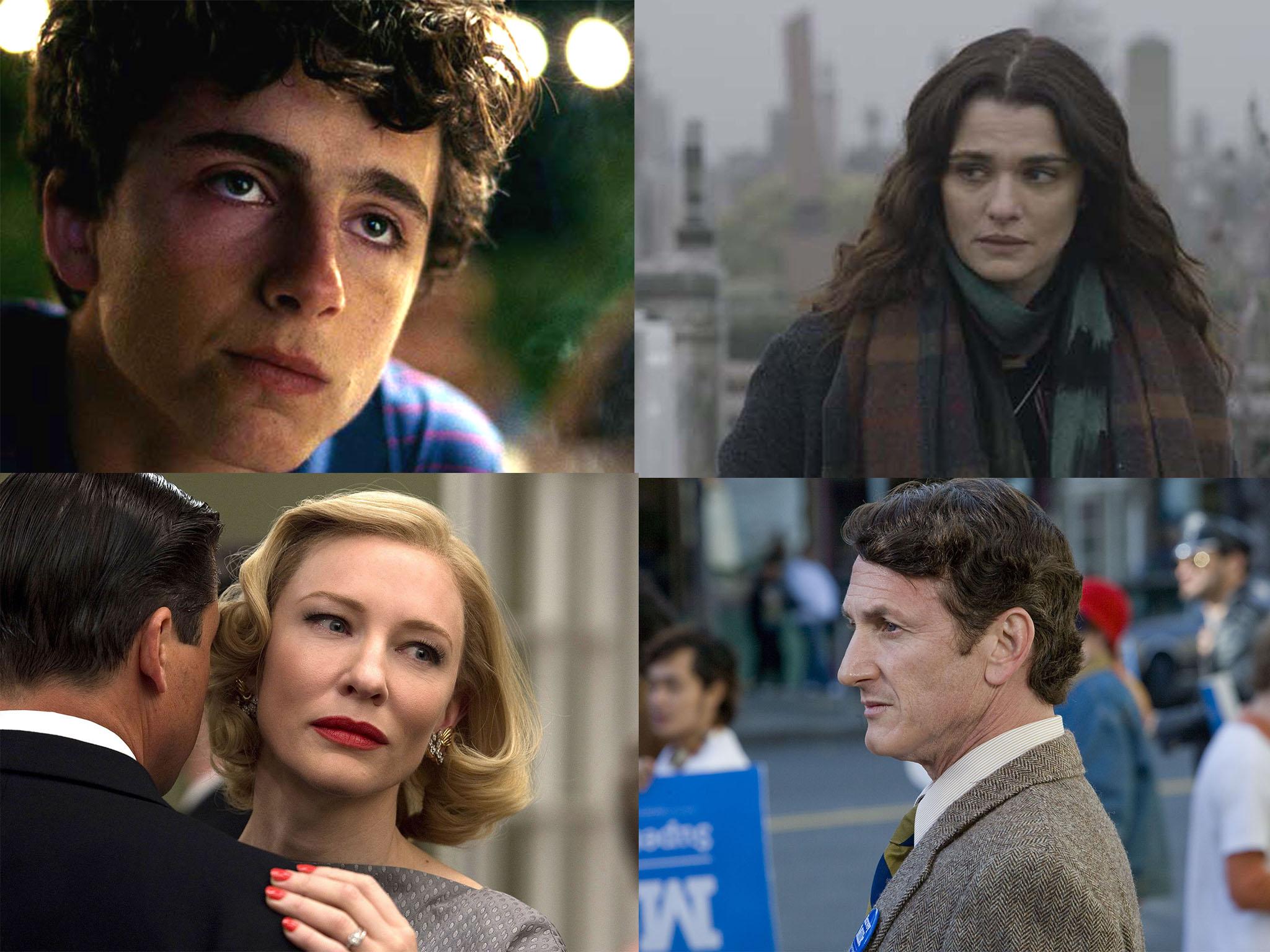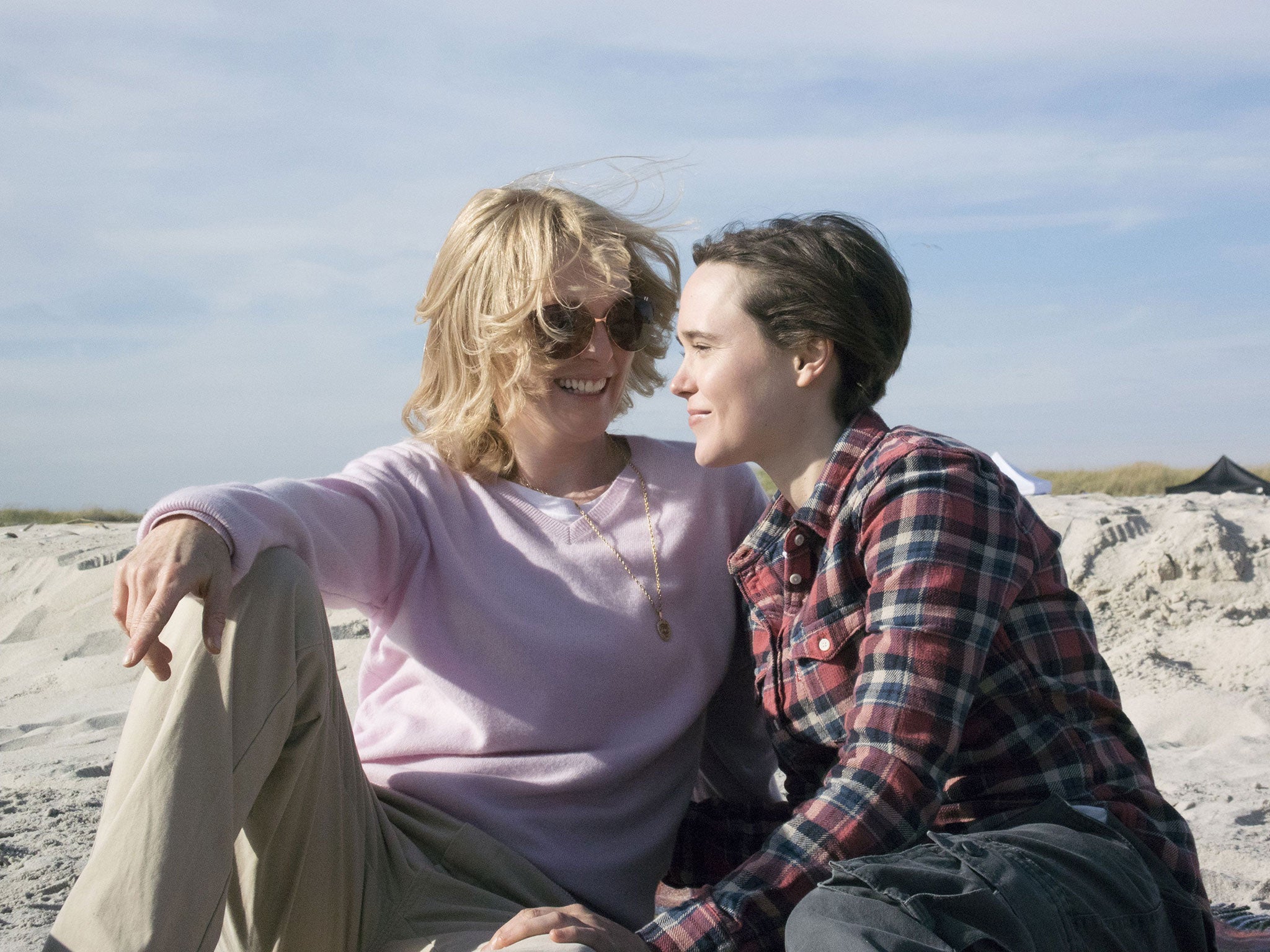‘Hollywood gets queer stories wrong’: Should straight actors play gay characters on screen?
Darren Criss has vowed to no longer take on queer roles. Gay actor Ben Whishaw doesn’t believe a performer’s sexuality should limit what characters they play. Alexandra Pollard explores the complicated debate over sexuality on film


Your support helps us to tell the story
From reproductive rights to climate change to Big Tech, The Independent is on the ground when the story is developing. Whether it's investigating the financials of Elon Musk's pro-Trump PAC or producing our latest documentary, 'The A Word', which shines a light on the American women fighting for reproductive rights, we know how important it is to parse out the facts from the messaging.
At such a critical moment in US history, we need reporters on the ground. Your donation allows us to keep sending journalists to speak to both sides of the story.
The Independent is trusted by Americans across the entire political spectrum. And unlike many other quality news outlets, we choose not to lock Americans out of our reporting and analysis with paywalls. We believe quality journalism should be available to everyone, paid for by those who can afford it.
Your support makes all the difference.Since the turn of the century, no fewer than 25 actors have been Oscar nominated for playing LGBT+ roles. Among them, Jake Gyllenhaal and Heath Ledger for cowboy romance Brokeback Mountain (2005); Charlize Theron for Aileen Wuornos biopic Monster (2003); Sean Penn for political drama Milk (2008); Benedict Cumberbatch as computer programmer Alan Turing in The Imitation Game (2014), and Timothée Chalamet for the woozy, coming-of-age drama Call Me by Your Name (2017). Of those 25 actors, not a single one was openly queer.
The debate over whether that matters has been gaining steam of late. When Jack Whitehall was cast in the forthcoming Disney film Jungle Cruise, as the studio’s “first openly gay character”, the news sparked as much censure as celebration. Meanwhile, actors like Rachel Weisz – who last year played two excellent queer characters, in Disobedience and The Favourite – are facing more scrutiny than they might have done even a decade ago. But it’s a debate with no clear-cut answer.
Darren Criss, who won a Golden Globe for his role as Andrew Cunanan in The Assassination of Gianni Versace: American Crime Story, recently vowed to turn down queer roles in the future for fear of being “another straight boy taking a gay man’s role”. But Ben Whishaw wasn’t on board. “I really believe that actors can embody and portray anything,” said the British actor, who is himself gay, “and we shouldn’t be defined only by what we are."
It’s an argument that has been used time and again. “I see my task as not to tell the story I’ve lived,” Weisz recently told Gay Star News. “When I played Blanche DuBois on the stage, I’m not an alcoholic. And I’m not interested in sleeping with teenage boys! But that’s the character. So I see storytelling as me becoming people that I’m not.” Cate Blanchett, who played the eponymous Carol in Todd Haynes’ beautiful, Fifties-set lesbian romance, agrees. “I will fight to the death,” she said, “for the right to suspend disbelief and play roles beyond my experience.”

This perspective though, however valid, is missing some nuance. For one thing, being queer is an identity in a way that being an alcoholic, or sleeping with teenage boys, is not. It isn’t an experience someone has, or hasn’t had, but an essential facet of their identity – and no amount of research can truly encapsulate that. Growing up, whenever I stumbled upon a film or TV show with a queer female character – My Summer of Love, Kyss Mig, Show Me Love, Hollyoaks (options were limited) – I’d hope, without really knowing why, that the actor’s lived experience might also mirror my own.
“I do really think, ideally, anyone should be able to play a perfect part for them,” Peppermint – the first transgender woman to create a major role in a Broadway musical, Head Over Heels, – told Vice recently. “But right now, gay, trans and queer people need to participate in the telling of their own stories. Hollywood has a terrible history of creating movies and making money off the experiences of marginalised people, without letting them have any input in the process. A lot of the time, Hollywood makes these stories about queer, trans and minority folks and they get it wrong: there’s offensive material, tragic storylines, one-dimensional, stereotypical characters with little depth.”
What’s more, openly LGBT+ actors don’t always get the same opportunities as their straight counterparts. When Emma Stone yelled out, “I’m sorry” at the Golden Globes last week for playing a part-Asian character in the 2015 film Aloha, it wasn’t just an acknowledgement that she had stepped into an identity that isn’t – and never will be – hers, but that she had taken that opportunity from someone else more suitable. Someone else who, because of their identity, would rarely be cast in many of the other roles that are readily available to Stone.
Many out LGBT+ actors face the same limiting prejudice, overlooked for queer roles but deemed unsuitable for straight ones. “Honestly, I would not advise any actor necessarily, if he was really thinking of his career, to come out,” said Rupert Everett, who believes his opportunities wilted after he came out as gay, in 2009.
A recent study found that more than half of LGBT+ actors had heard anti-gay comments on set, while almost half of lesbian and gay respondents believed that producers and studio executives considered them less marketable. They were also less likely to have an agent. Speaking to Vice, actor Giovanni Bienne, the chair of Equity’s LGBT+ committee, recalled going up for straight roles and being asked to keep “it” up during the chat afterwards. “Sean Penn didn’t audition for Milk,” said Bienne, “but if he had, they wouldn’t have him blow the casting team away, and then be told that he couldn’t keep the ‘gay’ up afterwards.”

Watch Apple TV+ free for 7 days
New subscribers only. £8.99/mo. after free trial. Plan auto-renews until cancelled

Watch Apple TV+ free for 7 days
New subscribers only. £8.99/mo. after free trial. Plan auto-renews until cancelled
But the idea that queer actors should stay in the closet is a troubling one. “Whether you’re straight or gay, people shouldn’t know anything about your sexuality,” said Matt Damon, who is publicly married to a woman, in 2015. It’s hard not to see a double standard at play.
When Ellen Page first signed on to play Stacie Andree – a gay woman fighting for the right to receive her dying partner’s pension benefits – in 2015’s Freeheld, she was, in her words, “very, very, very closeted”. But as filming approached, she told herself: “There’s no way you cannot be an actively out gay person if you make this film.” And so, in 2014, she came out as gay during a speech at a Human Rights Campaign conference. “There was something about being out, getting to play a gay character, and getting to play a woman who is so inspiring to me,” Page told Time magazine, “it was such an amazing experience.” She’s played straight characters since – in films such as 2016’s Tallulah – but she’s also embraced her role as a trailblazer in an industry that still underrepresents voices like hers. “Honestly, if I played gay characters for the rest of my career, I’d be thrilled.”

Where, though, does sexual fluidity fit into the debate? And what about actors who aren’t yet ready to discuss their own identity? When I interviewed Chloe Grace Moretz last year, for gay conversion therapy drama The Miseducation of Cameron Post, she grew uncomfortable when I mentioned an article citing her as a straight actor playing a gay role. “Well, I think what’s important is don’t assume anyone’s sexuality,” she said. “I mean, across the board, don’t assume.” A few months later, she was photographed kissing model Kate Harrison on the streets of Malibu.
For Desiree Akhavan, who directed Moretz in Cameron Post and recently starred in brilliant Channel 4 series The Bisexual, the most important thing is that there’s “a queer hand at the wheel”. “If they cast a straight actor and they have a lot of queer people on the team and they bring dignity to the role, I think it’s cool,” she said.
There is no easy, prescriptive solution here. But what is abundantly clear is that queer voices need to be heard – and not only when they’re spoken through the mouths of straight people.
Join our commenting forum
Join thought-provoking conversations, follow other Independent readers and see their replies
Comments